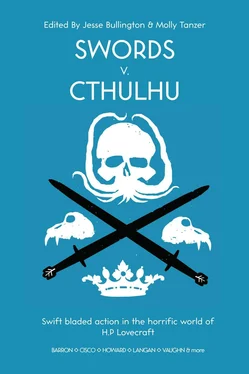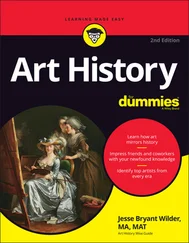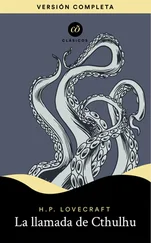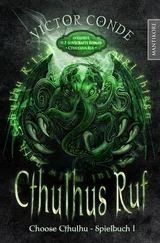Swift bladed action in the horrific world of H.P. Lovecraft
Edited by Jesse Bullington & Molly Tanzer
Introduction
by Molly Tanzer and Jesse Bullington
The title of this anthology begs a very good question: if a Norwegian steering a yacht square into Cthulhu’s face can’t take out the most nightmarish of H. P. Lovecraft’s eldritch creations, what hope should anyone put in a simple piece of sharpened steel?
Well, for better or for worse, there’s something about a finely wrought blade and a strong hand to hold it that inspires confidence, even when the odds are against us. Very against us, as is the case with the Old Ones. But long odds have never deterred a certain sort of swordsperson...
Mention a “Lovecraftian” tale and people often think first of stories focusing on academics puzzling over ancient scripts, or at least launching expeditions to gather information — even if it is information man was never intended to acquire. And yet, for as long as we’ve had the Mythos we’ve had action-packed, fantastical approaches to the telling of tales familiar to anyone who’s ever been excited by some sort of adventure starting in an inn. Somewhat predictably, Robert E. Howard gave us warrior-class protagonists battling slithery dark horrors; Clark Ashton Smith, rogues and wizards. C. L. Moore’s fiery Jirel of Joiry faced down horrors from beyond space and time; and even Lovecraft himself engaged in the telling of some tales of high adventure from time to time, most notably in “The Dream-Quest of Unknown Kadath.” The adventures of Randolph Carter in the Dreamlands are everything an adventure-loving reader could want, with our hero knowing when to fight, and more importantly, when to flee. While Lovecraft was less pleased with the overall effect of the tale, it undeniably set the stage for not only countless stories set in the Dreamlands but also hinted at the potential of setting Mythos tales in realms beyond the waking world — or at least our modern world, with its appalling lack of swords.
Even if Lovecraft had never dipped his dainty toes into the pool of “fantasy,” we would still have a compelling precedent for pitting the forces of cosmic horror against the sort of weaponry one usually finds paired with the addendum “and sorcery.” William Hope Hodgeson’s The Boats of the “Glen Carrig,” for example, of which Howie was a fan, has more swashbuckling encounters with obscene, eldritch monstrosities than you can shake a saber at. Then, of course, there is E. R. Eddison’s “The Worm Ouroborus,” which Lovecraft also admired, and which is one of the unsung progenitors of epic fantasy.
Looming — or perhaps more accurately, brooding — over the entire scene, however, are the Gentleman from Providence’s contemporaries, who penned far more accounts of eldritch action than Lovecraft himself, a good many of them historical or secondary-world. Robert E. Howard and C. L. Moore can obviously be credited with creating or at least codifying an entire subgenre of fantasy literature, their brawny brand inspiring countless films, comic books, and works of fiction (Charles Saunders’ Imaro being a favorite of both editors). Then there is the Clark Ashton Smith school of arch fantasy tinged with cosmic horror and human frailty, with which Jack Vance, Michael Shea, and even Fritz Leiber might be said to share a lineage.
Of course, none of this comes as a revelation to most fans of sword and sorcery; it could even be argued that part of what differentiates S&S from other branches of fantasy is the fatalistic pall of the subgenre. It’s not simply that sword and sorcery took off from the Weird Tales crew or that it often involves obscene rites and unspeakable horrors, it’s the amoral timbre of S&S that truly harkens back to Lovecraft, more so than “epic” or “high” fantasy — for whatever the battles won and glory earned, in the end the hours of mortals are brief and tragic, with the chaotic powers that lurk on the edge of mankind’s periphery never truly understood, and certainly never fully banished. Other forms of fantasy deal in absolutes, while sword and sorcery prefers to traffic in moral relativism and cosmic despair.
Swords v. Cthulhu is therefore the natural follow-up to Stone Skin Press’s previous action-packed mythos anthology, Shotguns v. Cthulhu . In that sterling collection, editor Robin D. Laws assembled fifteen modern masters to pen action-oriented Mythos tales of a modern or futuristic bent. Inspired by the quality of those stories, we began our quest to find fantastic (and fantastical) stories of derring-do and strength of arm, and settled... on twenty-two.
John Langan carves open our entry point with “The Savage Angela in: The Beast in the Tunnels.” Like the pulp alchemists of old, Langan fuses seemingly disparate elements into pure gold, though his reagents are (naturally) desperate action, epic monstrosities, and a melancholy sense of doom. Following this initial taste of the great inevitable is Michael Cisco and his “Non Omnis Moriar,” a sequel to Lovecraft’s own “The Very Old Folk,” set in Roman Hispania. Come along with us and follow a small party on an increasingly disquieting expedition into the Pyrenees to discover what befell the lost legion of Lovecraft’s tale. As with the best follow-ups to the master’s tales, Cisco doesn’t seek to one-up the original or explain away its mysteries; instead, he uses it as a springboard for his own brand of profound dread, both existential and intimate.
If the first two stories in the collection offer us different ends of the spectrum as to what Mythos-inspired fantasy can do, then Carrie Vaughn’s “The Lady of Shalott” lies on an entirely different plane altogether. Arthuriana and Lovecraftiana seem a natural fit, and yet while there are eerie threads woven into Vaughn’s story, at first the reader may overlook them for the broader tapestry, a piece that owes its tone to an unmistakable and less somber take on the Knights of the Round Table. As with previous masters of the field, like Clark Ashton Smith and Michael Shea, however, Vaughn proves that when properly executed, a deftly humorous piece can throw the horrors from beyond space and time into stark relief.
Having set the tone for the anthology, we next journey to a place where the real and the Mythological blur together, as A. Scott Glancy takes us high into the Himalayas in “Trespassers.” Glancy knows his way around an action set piece, but he also possesses a historian’s eye for detail, and brings together two unlikely bedfellows for a rousing yarn. Similarly, Remy Nakamura gets some eldritch chocolate in his historical peanut butter with “The Dan no Uchi Horror,” which recasts classic Lovecraft into a wildly different time and place. Imagine Takashi Miike doing to Lovecraft what Kurosawa did to Shakespeare, and you’ve got an idea for the feel of Nakamura’s dark, violent, and sensual samurai thriller.
Next, L. Lark transports us into a realm of sun-drenched mytho-history for “St. Baboloki’s Hymn for Lost Girls.” Her poetic prose recasts cosmic horror in the language of fable, and we find that by normalizing the weird our perception shifts from unsettled to sympathetic. Bringing us back north, John Hornor Jacobs splashes our face with cold seawater and presses colder steel into our hands. In “The Children of Yig” he transports us to a bloody vision of the Viking age, where a young woman with nothing to lose and everything to prove must hold her own against perils as extreme as any in the sagas.
In “The Dreamers of Alamoi,” Jeremiah Tolbert takes us yet farther afield, to a fantastical land that feels by turns firm under our feet and then fleeting as a curious dream. The result is pleasantly disorienting, but the longer we stay, the more the world solidifies around us, and very soon it coalesces into a frantic nightmare from which the only escape is to plunge ever deeper.
Читать дальше












